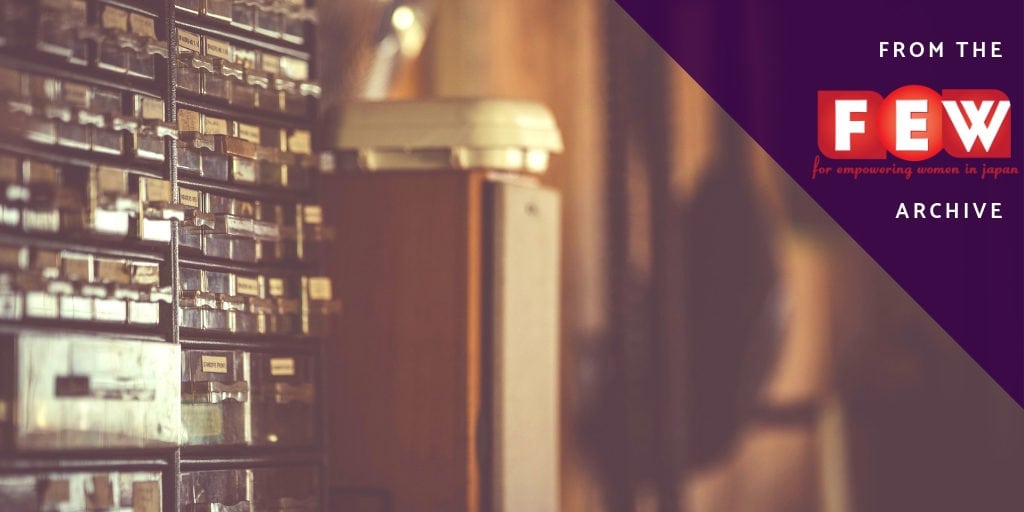Collaborative Event Recap: ISS International Symposium

By Petra Trudell, FEW Co-Director for Public Relations & Communications
On Tuesday, February 16, representatives of FEW attended “An Intergenerational Panel Discussion with Women Pioneers of DRR: Diversity and Risk Governance,” an international symposium from the Institute of Social Science at the University of Tokyo. Held on the university’s Hongo Campus, in Fukutake Hall, the symposium welcomed three generations of women who work in various areas of disaster risk reduction, in conjunction with the fifth anniversary of the Great East Japan Earthquake.
The panelists were Ms. Mio Kamitani, Secretary-General of the NGO Otsuchi Yume-Hiroba, Dr. Lucy Jones, an American who serves as Science Advisor and Seismologist for the U.S. Geological Survey and Dr. Hiroko Hara, Professor and Vice President at Josai Kokusai Daigaku/JWNDRR. The panel was led by Dr. Jackie F. Steele, an Associate Professor at ISS, with commentators Ms. Megumi Ishimoto, the Executive Director of the NPO Womens’ Eye and Ms. Rumbidzai Kandawasvika-Nhundu, Senior Program Manager of Democracy and Gender at the International Institute for Democracy and Electoral Assistance in Sweden. These women shared their thoughts and experiences, reflecting on why they entered their chosen career fields, the hurdles they faced along the way and how they felt the law and governmental policy (both in Japan and abroad) could be changed to better serve women not just in DRR, but as a whole.
Dr. Jones discussed how she was the only woman in her physics classes in college, but this distinction has become an advantage career-wise in times of disaster, when she finds herself in front of the camera speaking to the public.
“We say, ‘Somebody understands this,’ and that provides comfort,” she said.
Ms. Kamitani, who disliked school in Japan due to the blatant favoritism of boys, eventually came to study in the U.S. for part of high school and later for university, returned to Japan following 3/11 after working as a nurse in the states and in disaster relief throughout Asia. Living in the very traditional community of Otsuchi, she found herself standing up for the needs of women in ways big and small, such as taking her baby to work with her.
“I have to show [that] for women to be involved in any kind of work, we have to have childcare,” she said.
Dr. Hara, who at 81 years old has worked around the world as an anthropologist, reflected on a terribly poignant moment in her childhood that helped shape her views on gender roles when when, at 12 years old, she witnessed the suicide of a mother and her child due to societal pressures.
“I did not hate Japanese society,” she said. “But I was critical of Japanese society.”
The three women have overcome hurdles including societal views on gender roles and blatant disregard by their male colleagues to become leaders in their fields, and they continue to encourage the advancement of women. Their main recommendations included:
- Better childcare and accommodations for working mothers
- Improved education for both boys and girls
- A shift in societal norms and expectations
- Support and encouragement for women into higher positions
- Greater emphasis placed on the role fathers play in their daughters’ lives
- Change in how women are represented by the media and in advertising
- Self-accountability among women for the choices they make to help or stall their careers
- A need for women to “self-select” themselves into the roles they want
Ms. Ishimoto and Ms. Kandawasvika-Nhundu echoed these sentiments, commenting on the lack of visible women in rebuilding efforts following a major disaster as well as public office. In closing, Ms. Kandawasvika-Nhundu brilliantly summed up a belief she feels is stalling the progression of women in and their ideas, giving attendees something to to think about as they left the symposium:
“The assumption that everything that is male is of good quality.”
